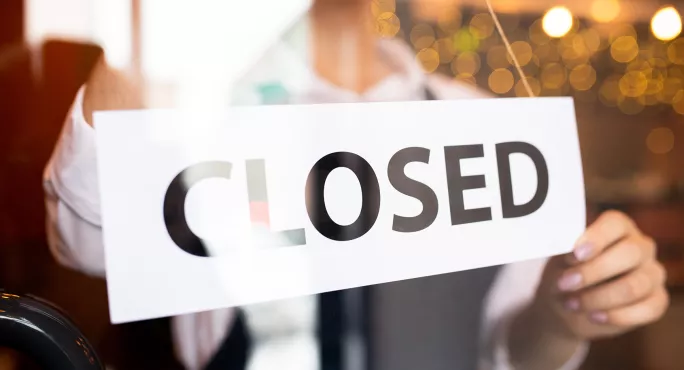- Home
- Analysis
- Specialist Sector
- Why are independent schools closing in Scotland?
Why are independent schools closing in Scotland?

The news that two Scottish independent schools are closing raises questions about the health of the sector as a whole.
Now, the national body for the sector has called for a delay in the implementation of VAT on fees - although several other factors had already been putting pressure on the sector, even before recent concerns about the VAT policy.
Yesterday, Kilgraston School in rural Perthshire - Scotland’s only Catholic boarding school - announced that it was closing with immediate effect, while on the same day, it emerged that Cedars School in Greenock would close in September.
Some other Scottish independent schools are understood to have been exploring options as a matter of urgency, including short-notice fundraising.
Kilgraston had previously been on the verge of closure in June 2023 - at which time it had 217 pupils and 116 staff - but soon earned a reprieve after a fundraising campaign raised £1.2 million.
Now, however, a statement on the school website points to “a short and long-term funding deficit”, adding: “The board of trustees has explored a number of opportunities in a bid to save the school but unfortunately none of these have offered a financially viable solution. This leaves the school with no choice but to close.”
Funding shortfalls
It was reported that, with the projected Kilgraston roll down to 173 pupils, parents had been told in a letter that there was a funding shortfall of £860,000 for the coming school year.
Yesterday it was reported that Cedars School, an independent Christian school, would close from Friday 27 September, despite a late fundraising push from parents that raised over £50,000. A falling school roll is a factor at Cedars, where it is understood that 14 teaching jobs will be affected by the closure.
Closure of independent schools has also been a live issue in England, amid concerns that “adverse political and economic factors” are making some schools “unviable”.
Other recent developments in the sector in Scotland have included the merger of Glenalmond College in Perthshire with nearby Craigclowan School, announced in June, and the merging of the junior and senior school campuses at St Columba’s School, near Glasgow, announced in March.
So what is happening in Scotland’s independent schools sector?
- Need to know: Scottish private schools and VAT
- Context: New register of independent schools in Scotland published
- Data: ISC report shows biggest fall in independent school pupil numbers since 2011
Much of the attention recently has been on the policy of the new Labour UK government to remove VAT exemption and business rates relief for independent schools. While this had been trailed for some time, the initial expectation that it would apply from September 2025 later changed to January 2025.
The independent schools sector in Scotland and beyond has also cited several other sources of financial difficulties in recent times, such as the impact of the Covid-19 pandemic.
Rising costs
The fast-rising costs of food and utilities, among others, have also been highlighted by the sector, as well as the application of higher business rates in Scotland.
The March 2023 pay deal for teachers in state schools has also been mentioned as a possible factor - with salaries in the independent sector sometimes struggling to keep pace - as have increases in national insurance.
A spokesperson for the Scottish Council of Independent Schools (SCIS) said: ”The news of the closure of Kilgraston School in Perthshire and Cedars School in Greenock is extremely sad for the pupils, families and staff involved and for the wider communities in which they are based.
“The UK government has not assessed the impact which VAT on school fees will have on both the independent and state sectors in Scotland. Independent evidence has shown the policy will cost the state money in Scotland, given the increased burden it will place on state schools.”
Call for delay to VAT policy
The SCIS spokesperson added: ”We are calling on the UK government to delay the implementation of VAT on fees until September 2025, to give schools and families time to prepare for this significant change.”
SCIS has pointed out that schools’ planning in recent times had been based on the VAT policy coming into effect from September 2025, with school fees for 2024-25 set before the 4 July general election took place.
To implement the change midway through a school year, says SCIS, will be “extremely difficult for schools to deal with and will force them to take even more difficult decisions”.
For the latest Scottish education news, analysis and features delivered directly to your inbox, sign up to Tes magazine’s The Week in Scotland newsletter
You need a Tes subscription to read this article
Subscribe now to read this article and get other subscriber-only content:
- Unlimited access to all Tes magazine content
- Exclusive subscriber-only stories
- Award-winning email newsletters
Already a subscriber? Log in
You need a subscription to read this article
Subscribe now to read this article and get other subscriber-only content, including:
- Unlimited access to all Tes magazine content
- Exclusive subscriber-only stories
- Award-winning email newsletters
topics in this article



